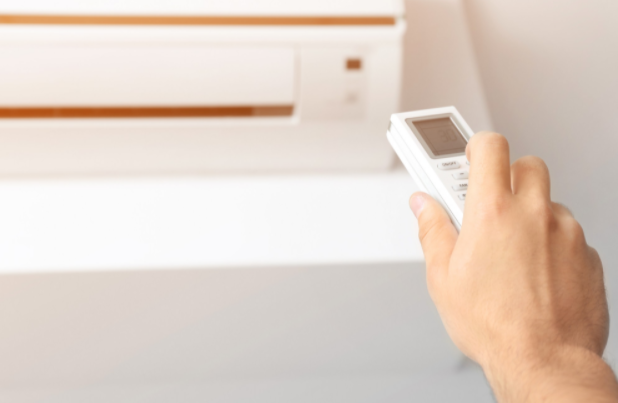Clean Your Filters
Your air conditioner filters will accumulate dirt and dust over time, but thankfully cleaning air conditioner filters is an easy task that you can do at home. Follow the manufacturer’s instructions on removing the filter, and wipe away any loose dirt. Use a soft brush or sponge to clean out the filter under running water, using soap as needed. Dry the filter before replacing.
Get Professional Maintenance and Chemical Wash
Professional maintenance is a surefire way to maintain your AC unit in tiptop shape. Your air conditioner should be serviced every 6 months, and cleaned with a chemical wash at least once a year to keep working properly.
A reputable aircon service company should be able to identify any issues with your unit, as well as refill the refrigerant, clean the condenser coils, and do a full chemical wash without damaging the interior of your aircon. The best aircon chemical wash companies can get your unit up and running smoothly, even when you haven’t had the unit cleaned in a long time.
Keep the Exterior Clean
For DIY cleaning, stick to the exterior of your air conditioner unit. The exterior can easily be wiped clean with a damp cloth, and the AC vents can be brushed away of grime and moisture that accumulated over time. Keeping the exterior of your AC unit clean will prevent dust from getting into your unit, minimizing the frequency of required cleaning.
Clear Blockage from the Outdoor Unit
Besides the indoor unit, your AC has an outdoor unit where warm air escapes from. When the vents of the outdoor unit are blocked, either by backyard debris or a large piece of furniture, then the warm air cannot escape properly, causing the unit to malfunction.
Keep the outdoor unit free from blockage, and keep it clean by giving the unit a good hose down when not in use. A light roofing structure will prevent debris from falling onto the vents of the outdoor unit as well.
Don’t Use Your AC in Cold Weather
When the weather is cold outside, your air conditioner should be set to its heater setting, or not operating at all. Using the cool setting on your AC unit during cold weather can cause the unit to ice up and malfunction. Frozen AC units can cause the internal mechanisms to break down, shortening the life of your air conditioner.
Don’t Try to Repair Your AC
For any of your air conditioner repair needs, seek professional repair services instead of trying to fix the problem yourself. Working with electrical mechanisms without proper knowledge is highly dangerous, and you can unintentionally damage your unit instead.
Professional air conditioner repair technicians are well-equipped with the knowledge and expertise to properly diagnose and repair any issues that may arise from your AC unit. Give your maintenance technician a call, or look for a reputable repair service around your area instead.
Don’t Overcrowd Electrical Sockets
Overcrowding electrical sockets is one of the reasons for short circuits, blown fuses, and even house fires. Avoid plugging your air conditioner in with other large, heavy duty appliances. Keep plugged in wires to a minimum, and unplug any wires that are not in use.
As much as possible, have a separate socket for your air conditioning unit to prevent any issues from overcrowded sockets. Unplug your air conditioning unit when not in use, and keep all electrical items away from children and pets.
Household Units Should Not Run 24/7
Contrary to popular belief, even inverter air conditioners should be given a rest every now and then. Running your household air conditioner 24/7 is not practical, and will leave you with an insanely high electricity bill. Household air conditioners are simply not meant to be used 24/7, unlike commercial air conditioners which are meant to withstand heavy and frequent usage.
For household units, an air conditioner should run for a maximum of 12 hours at a time, with cool down periods in between to keep the unit from overheating, malfunctioning, or breaking down. If you need to run an air conditioner 24/7 for any reason, consider looking into commercial units instead, or operate more than one unit in intervals.








